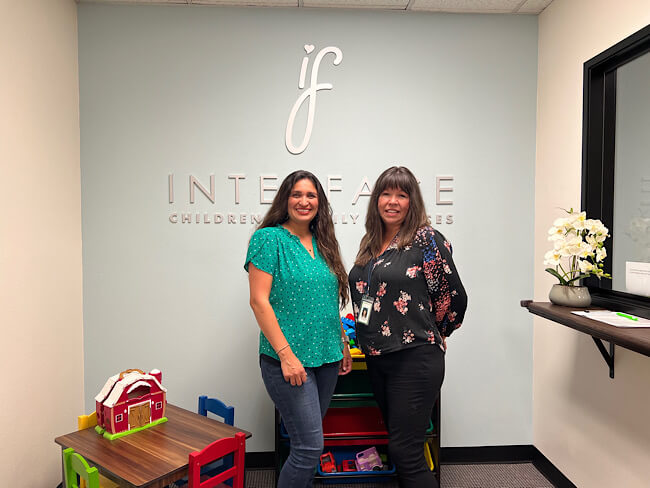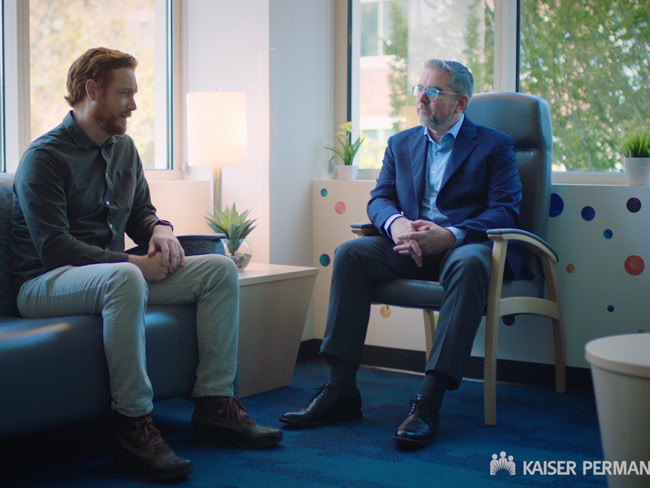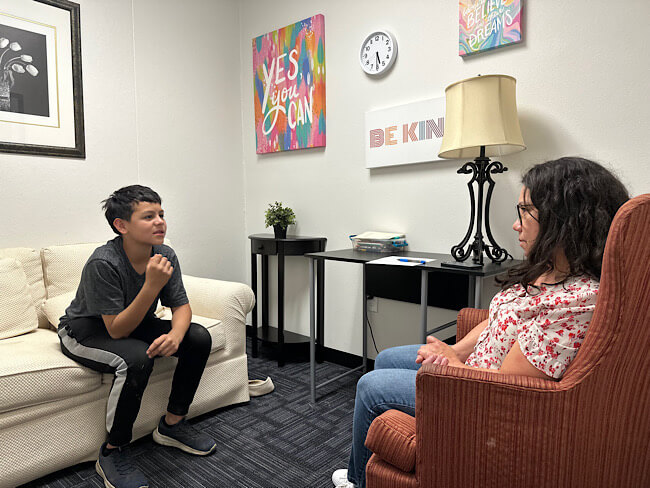5 facts about autism
A Kaiser Permanente doctor shares key details. By learning more about autism, you can help create a more welcoming, inclusive world.
Knowledge can help dispel stigma and misconceptions surrounding the complex condition of autism, leading to greater understanding and acceptance.
One in every 36 children are identified as having autism spectrum disorder. At Kaiser Permanente, we focus on fully supporting our autistic members and patients and sharing facts. By learning about and appreciating autism, you help foster a more inclusive and accepting society. Learning about autism also helps us all dispel misconceptions.
What is autism?
Autism, also known as autism spectrum disorder, is a developmental disorder. Autism can affect communication, social interaction, and behavior.
Many people with autism feel it is a core part of their identity and contributes to their unique way of experiencing the world. They don’t see it as a disorder in need of a cure. Rather it’s a fundamental part of who they are and brings both challenges and opportunities.
Many autistic people prefer “identity-first” language. That means they prefer to be called “autistic” rather than “a person with autism.”
The exact cause of autism is unknown. Many factors, such as genetics, may be responsible.
The term “spectrum” refers to the wide range of traits and experiences of autistic people. Both children and adults can be autistic.
Traits associated with autism can include:
- Differences with speech and communication — Autism can cause a person to struggle to understand nonverbal forms of communication, such as body language. Some autistic people don’t speak at all. They may communicate using sign language. They may use an assisted communication device. Some autistic people are very talkative. Many kids with advanced reading skills are also autistic.
- Sensory processing differences — These can include challenges with noise, taste, touch, or smell. Crowded, loud places can be especially uncomfortable for some autistic people.
- A preference for structure and routine — Many autistic people strongly prefer routine. Routines can help people feel a sense of consistency, especially in a world full of sensory challenges.
- Special interests — Autistic people may have intense interests. They can develop great knowledge about their special interests, which later can turn into successful careers.
- Special skills — These are more common among autistic people. Some may be gifted musicians or have exceptionally good memories.
If you think you or a dependent child may be autistic, you can speak with your doctor to learn more.
Beyond the myths and misunderstandings
While research and learning about autism continues, so do some misconceptions.
“It’s important to educate ourselves to dismiss widespread misinformation. It’s also key for families to be informed. Then they can advocate for their child’s health and future,” said Evita Limon-Rocha, MD, child, adolescent, and adult psychiatrist at the Kaiser Permanente Riverside Medical Center. “Unfortunately, it’s easy to become influenced by a lot of misinformation.”
Here are some key facts:
- Vaccines don’t cause autism. According to Dr. Limon-Rocha, some people hold the misconception that autism is caused by vaccines.
"There is absolutely no truth to it,” Dr. Limon-Rocha shared. “Many studies have debunked the theory. Science has established that childhood vaccines are safe. They protect children against serious diseases.” - Autism is not an epidemic. “Contrary to what some may believe, there’s no autism epidemic taking place across the country,” said Dr. Limon-Rocha. “Although more children are being diagnosed with autism, we can thank advancements in medicine and behavioral health for that. These advancements help us more accurately diagnose children.”
- Autism affects all genders. According to the Centers for Disease Control and Prevention, boys are 4 times more likely to be diagnosed with autism than girls. This may be related to genetic factors. It may also be, in part, because more girls go undiagnosed. Often, autism in girls just looks different from the stereotype of autistic behavior.
- Autistic people can be successful in all kinds of fields. Some people have a stereotype of autistic people being introverts skilled in math. However, many autistic people are extroverted, and they excel in all different fields.
- A “label” can be a good thing. Sometimes parents are reluctant to seek a diagnosis for their child because of fear about stigma. However, early diagnosis is key, says Dr. Limon-Rocha.
“When children are diagnosed early, they can receive individualized support. This can impact a child’s future and well-being,” Dr. Limon-Rocha said. “For example, a child who has difficulty with loud noises or certain food textures can often benefit from therapy. It can help them to feel more comfortable and confident.”
Therapy can often help identify the source of an autistic person’s struggles. Therapy can also help people identify and advocate for their needs.
“Our understanding of autism has come such a long way,” said Dr. Limon-Rocha. “Today, many people have a colleague, friend, or loved one who is autistic. That helps us appreciate the challenges autistic people face as well as the special way they experience the world.”
Learn more about autism spectrum disorder.





























































